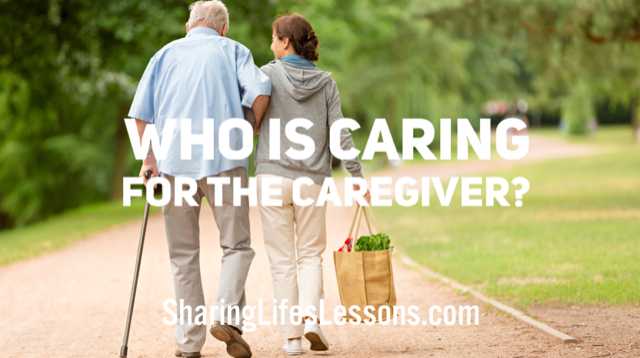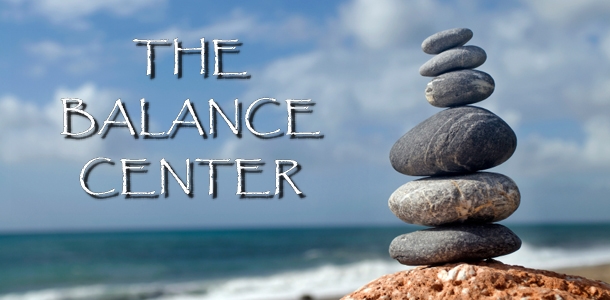Who is caring for the caregiver?
- 20
- March
- 2024

Are you a caregiver? More and more people that we know are in a position of needing to care for a loved one. As our population is aging, caregiving is an issue that is becoming more and more widespread in our society. We are reminded of quote by Roselyn Carter, “There are only four kinds of people in the world. Those who have been caregivers. Those who are currently caregivers. Those who will be caregivers, and those who will need a caregiver.”
Caring for an aging, ill, or disabled loved one can be an incredibly rewarding experience that strengthens family bonds and allows you to provide personalized care. However, the responsibilities of caregiving also carry significant risks of burnout, depression, and neglecting one’s own health needs. Striking the right balance is crucial.
Dr. Atul Gawande, surgeon, and author of Being Mortal, has some ideas on how to keep balance in a caregiving situation. He says, “There is a liberation in caregiving, when you fill your mind and heart with a sense of service and gratitude.” Dr. Gawande cautions however, that caregiving has tradeoffs. To prevent burnout, caregivers must make their own well-being a priority. Dr. Gawande advises, “In attending to my wife’s needs, I made the typical mistake of a caregiver: forgetting my own.” He emphasizes the need for respite to recharge.
Because of the intense demands of caregiving, both physical and emotional, caregivers can easily burnout. The Family Caregiver Alliance defines caregiver burnout as “a state of physical, emotional and mental exhaustion that may be accompanied by a change in attitude, from positive and caring to negative and unconcerned.” Additional signs include irritability, fatigue, anxiety, and health problems.
Experts suggest to avoid burnout, building a support network is key. Don’t try to do everything alone – make a list of tasks and determine what kind of help is needed, whether it’s meals, errands, home care assistance, or regular relief from caregiving duties. Involve family, friends, community resources, and if affordable, professional home care services. Candid communication about your needs as the caregiver is essential.
Famous actor, Rob Lowe recalls what his family needed when they were caregivers. He said, “My mother lived with us the last 12 years of her life and my wife, and I were her caregivers. It was the hardest, most beautiful thing. We had to ask for help when we needed it.”
What we’ve learned is that maintaining your own health through exercise, nutrition, rest, and medical check-ups is vital. Prioritize time for hobbies, relaxation practices like prayer, meditation, and social activities. Many caregivers find that joining a support group provides an understanding and encouraging environment to share experiences and advice.
If you feel that your approaching your caregiving limits, don’t feel guilty about utilizing respite care services. Stepping back for a temporary break allows you to recharge. Day centers for seniors and short residential stays at nursing facilities can provide the loved one with 24/7 care for stretches.
Also, be realistic about your limits as well. Adapting the home environment with equipment like grab bars, ramps, and adjustable beds can reduce physical strain. Simplify tasks, when possible, by exploring transportation services to reduce driving duties or meal delivery options. Know when to bring in professional home health aides, if affordable.
Despite the struggles, caregiving allows you to spend precious time with loved ones and provide personalized, compassionate care. Author Michael Denton shares “My mother’s needs were extraordinary, but her lessons for me were life changing. Looking back, I wouldn’t have had it any other way.”
We found Denton’s statement to be true in our life when we cared for our moms toward the end of their earthly lives. We learned many precious life lessons from this experience. As Tia Walker, co-author of The Inspired Caregiver: Finding Joy While Caring for Those You Love! says, “Caregiving often calls to lean into love we didn’t know possible”. We also found that to be true. Caregiving helped us discover an even deeper level of love and compassion.
What about you? Are you a caregiver? Are you feeling like you’re approaching burnout? Notice that what we’ve shared is not only about caring for others, but also about caring for yourself. Caregivers have been referred to as “the hidden patients” by health professionals. Avoid becoming a patient yourself by prioritizing self-care, utilizing support systems, and being willing to set boundaries. Then you can find more balance as a caregiver. With practical and emotional support in place, you can better experience the profound rewards of caring for others, while lowering the risks of burnout for yourself.
Chanhassen MN residents, Doug and Lynn Nodland are success coaches and owners of The Balance Center in Excelsior. Contact them at WeCare@TheBalanceCenter.com
© Doug and Lynn Nodland 2024 Articles and videos may be shared in their entirety with attribution.
Search:
Categories
Archives
- April 2024
- March 2024
- February 2024
- January 2024
- December 2023
- November 2023
- October 2023
- September 2023
- August 2023
- July 2023
- June 2023
- May 2023
- April 2023
- March 2023
- May 2021
- April 2021
- March 2021
- February 2021
- January 2021
- December 2020
- November 2020
- October 2020
- September 2020
- August 2020
- July 2020
- June 2020
- May 2020
- April 2020
- March 2020
- February 2020
- January 2020
- December 2019
- November 2019
Contact Us
Doug Nodland J.D.
684 Excelsior Boulevard
Suite 120
Excelsior, MN 55331
952-452-2664
WeCare@TheBalanceCenter.com

